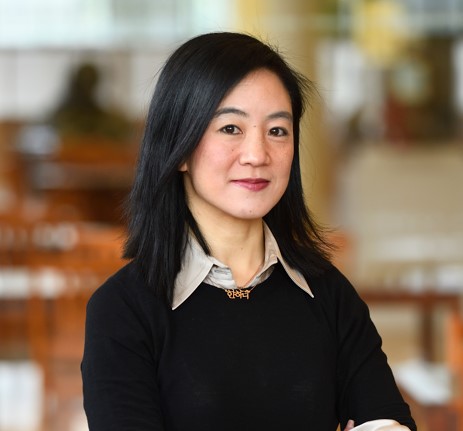OPINIONS
Anna Kynthia Bousdoukou
October 27 2022
When the pandemic first began in the spring of 2020, the Social Science Research Council in the United States decided to create a “Time Capsule for Future Social Researchers,” a way for scholars from a range of disciplines to record the extraordinary historical moment. They asked each of us to identify a visual artifact of the pandemic, and then to participate in an interview about it. When I was invited to be part of this time capsule, I chose an image [1] of a health care worker in America standing in the street in his scrubs calmly blocking an angry woman who was protesting the stay at home orders from being able to move her car. There were so many reasons that I chose that picture, but one was the way in which the image underscored the pandemic’s ability to show how desperately we all needed to find ways to work together to create the world we want. Back in May 2020, I said, “The standoff between the two people in this picture encapsulates, for me, the desperate need we have to create a new kind of solidarity from the ground up, but also the inherent challenges we face in doing so.”
The pandemic has been like a giant stress test for our global society, expanding the fissures that had been emerging and, in some cases, sundering them apart. It reminded me of a letter that author George Orwell wrote to his friend in 1940, when the second world war was ravaging society. He wrote, “The old life we’re used to is being sawn off at the roots”. It feels like we are in another moment like that, when the pandemic, the changing contours of the global economy, the political upheavals confronting so many countries, and all the social dislocation that accompanies these changes are challenging the work we do and the communities in which we live. The foundations of our world are being sawn off at the roots. The question is, what can we do to reimagine a different world, and then work to make it so?
As someone who studies social movements, civil society, and shared deliberation as a strategy for social change, I always turn instinctively to the question of people when confronted with big questions like this. What do people need? During the pandemic we saw so many people—from health care providers to public health workers to neighbors—stepping up to ask themselves that same question, “What do my people need?” Even when governments were failing us, it showed the enormous power of people’s unleashed compassion.
As we begin to turn the corner on the pandemic, and reconsider the long-term challenges and opportunities that now confront us, the question is what we can do to instantiate the best of what we learned about ourselves during the pandemic, so as to overcome the hurdles that have been laid bare. I am convinced that the answer lies, at least in part, in figuring out how we can build on what we learned about what people can do when they act together, and begin to figure out how we build the bridges we need to build the interdependent society we want.
That—the work of building bridges, creating structures to facilitate interdependence, teaching people to act together—is the work of civil society. In ancient Athenian democracy, much of that work happened in the agora, the marketplace where people came together to shop, debate and deliberate, and otherwise engage in the work of building a shared community. Of course now, in the twenty-first century, the literal agora has disappeared. But we still have so many civic spaces all over the world, both online and offline, that enable us to do this work of bridge-building, creating interdependence, and solving problems together.
What we need is to strengthen the ability of institutions that constitute the modern-day agora—the digital forums where people gather, the information ecosystem, the communities of faith and other community-based organizations where people gather—to equip a group of people to work together in order to make the change they want. That is how we will begin to build the democracy we need for the future.
I ended my interview about the time capsule with one of my favorite quotes: “Hope is belief in the plausibility of the possible as opposed to the necessity of the probable”. I believed that at the start of the pandemic and I still believe it now. I firmly believe that if we learn to work together, with intention, to build bridges across groups of people and create accountable structures to enable those relationships to grow, then we will be better able to solve the problems we have now, and in the future. All we have to do is believe and then act to make the possible more plausible.
[1] Han, H. (2020). A Time Capsule for Future Social Researchers: Hahrie Han. Social Science Research Council Available from: https://covid19research.ssrc.org/time-capsule/hahrie-han/



